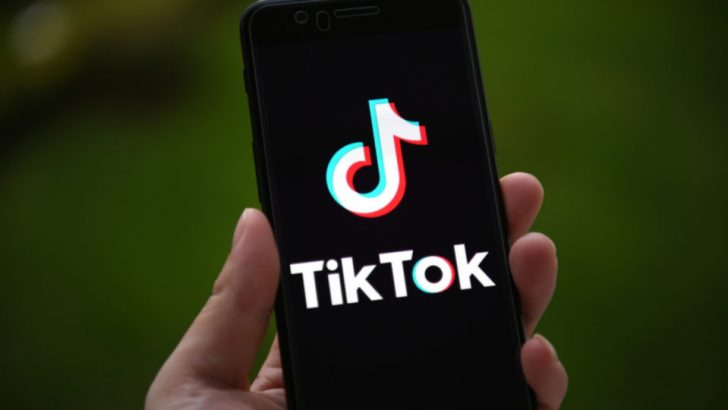Girl rescued after making hand signal learned on TikTok
A 16-year-old girl was rescued in Kentucky after using a hand gesture she learned on social media app TikTok to signal to motorists that she was in trouble, the Laurel County Sheriff’s Office has said.
The signal, facing the palm outwards and closing the fingers around the tucked thumb, has been demonstrated by users and non-profit organisations on TikTok as a way for a person being abused to tell someone they are in trouble without alerting the abuser.
The girl was in the front passenger seat and made the signals from inside the car, a spokesperson for the Laurel County Sheriff’s Office said.
A driver recognised the sign and called 911, which dispatched law enforcement officers to intercept the vehicle.
“That hand gesture was everything. Had that not been…transmitted by the young lady, had there not been someone out there that knew how to interpret what she was doing, then who knows? We might not have had a good resolution on this,” Deputy Gilbert Acciardo said.
Facebook gives estimate of bullying on its platforms for first time
Facebook has for the first time disclosed the prevalence of bullying and harassment on its platform, saying such content was seen between 14 and 15 times per every 10,000 views on the site in the third quarter.
The company, which recently changed its name to Meta, also said in its quarterly content moderation report that bullying and harassment content was seen between five and six times per 10,000 views of content on Instagram.
The social media giant, long under scrutiny over its handling of abuses on its services, has been in the spotlight after a former employee and whistleblower, Frances Haugen, leaked internal documents that include research and discussions about Instagram’s effects on the mental health of teens and on whether Facebook’s platforms stoke divisions.
LOTR director Peter Jackson sells visual effects firm for $1.6bn
Part of the New Zealand-based visual effects studio co-founded by Oscar-winning director Peter Jackson has been sold for $1.6bn, the BBC reports.
A division of Weta Digital, which has worked on films including Lord of the Rings and Avatar, is being bought by video games software company Unity.
Unity’s technology is behind games such as Pokémon Go and Call of Duty: Mobile.
The firms say the deal means that Weta’s special effects tools will be “democratised”.
“Together, Unity and Weta Digital can create a pathway for any artist, from any industry, to be able to leverage these incredibly creative and powerful tools,” Sir Peter said in a statement.
Weta, which was co-founded by Sir Peter in 1993, is known for creating animated characters such as Avatar’s Neyriti, Gollum in the Lord of the Rings film series and Caesar from Planet of the Apes.



